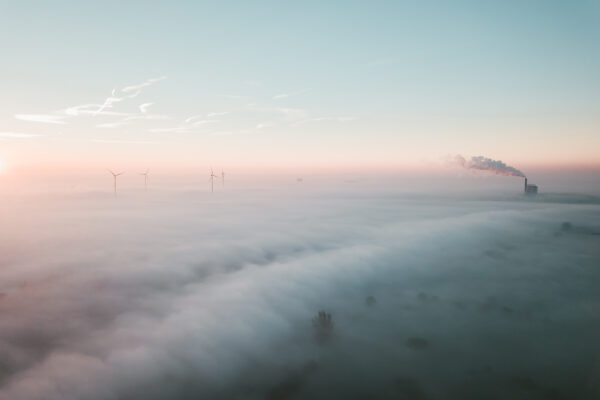
Energy is one of the top issues in the Dutch parliamentary election, which will take place next month. Right-of-center parties have followed the traditionally more environmentally conscious Greens and social-liberal D66 (of which I am a member) in their ambition to adhere to the 2015 Paris Climate Agreement. But there are differences.
While there is consensus on some topics, such as biomass and natural gas, nuclear energy and windmills are controversial.
Consensus on natural gas
Natural gas has for decades been the Netherlands’ most important energy source. It met 44 percent of the country’s energy needs as recently as 2019.
That is changing. All major parties agree production in Groningen must come to end. Exploitation of the gas field — Europe’s largest — has already been scaled back to reduce earthquakes and the damage they do to homes and farms. The parties also agree gas reserves under the Wadden Sea will remain untouched. The most ambitious plans call for phasing out natural gas consumption in two years.
D66 and Prime Minister Mark Rutte’s liberal VVD still see a role for natural gas as a transition fuel, since it is cleaner than coal and oil. The Greens insist continued use of natural gas will deter investment in renewable energy.
Windmills at sea, but not on land?
Wind energy is a delicate topic in the Netherlands. There is broad political support for building more wind turbines at sea, less so for windmills on land.
D66 and the Greens would both issue permits for 6,000 10-megawatt wind turbines in the North Sea, with the former hoping to achieve that goal by the end of this decade and the latter targeting 2040. Adding 60 gigawatts in capacity would necessitate 125 times the number of wind turbines currently running.
On land, the VVD would give voters the power to veto windmill construction in their backyards. Only the Greens are explicitly in favor of more windmills on land.
Solar panels
The VVD applies the same logic to solar panels, but they are more popular. D66 and the Greens would make the installation of solar panels mandatory in large developments. The two liberal parties call for solar panels on water. The Christian Democrats and Labor Party prefer solar panels on rooftops to spare agricultural land.
Whatever the outcome of coalition talks, a major role for solar panels in the Dutch energy transition appears to be guaranteed.
Nuclear dilemma
Of the major parties, the VVD is the most enthusiastic about nuclear energy. While otherwise wary of state support for companies, it would subsidize the construction of new nuclear power plants to reduce CO2 emissions. The Christian Democrats agree.
Left-wing parties reject nuclear power as too expensive and unsafe. Instead of building new plants, they would close the Netherlands’ only atomic power station, at Borsele, as soon as possible.
D66 claims to keep an “open mind”, but its opposition to subsidies means it is effectively ruling out nuclear power.
Without subsidies, nuclear cannot compete with either renewables or fossil fuels. But even with subsidies, energy companies are reluctant to take the risk.
Green hydrogen
Green hydrogen functions in much the same way as natural gas, making it an attractive option for factories, refineries and ships, which cannot easily switch to solar or wind.
But green hydrogen production still emits a lot of CO2. To be sustainable, it needs a far greener energy mix.
The Greens and Labor Party believe the Netherlands can become a global leader in green hydrogen. They also see job opportunities for the provinces of Groningen and Drenthe, where the gas industry is packing up.
D66 calls for research into energy islands in the North Sea for the production and storage of hydrogen.
Ad van Wijk, a professor of future energy systems at the Delft University of Technology, and a strong proponent of hydrogen, told Trouw last year that “to make hydrogen a real success, national management [is] necessary.” That appears to be forthcoming.
No future for biomass
Biomass has been a source of tension in the outgoing parliament. It was meant to play a crucial role in the Dutch energy transition, but studies suggest fumes emitted by biomass plants may be more harmful to the environment than coal and gas.
The VVD would immediately stop subsidies for plants that burn wood to generate electricity. D66, the Greens and Labor would phase out biomass plants. Only the Christian Democrats still see a future for “sustainable biomass,” for example, in green car fuels.
